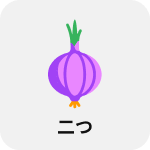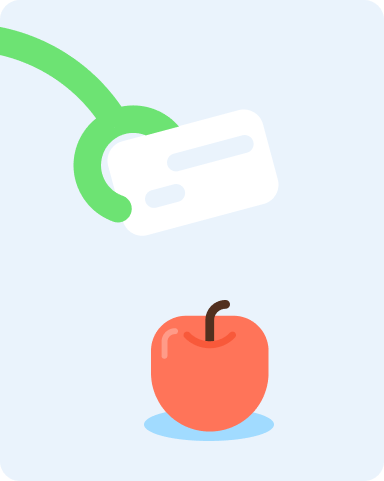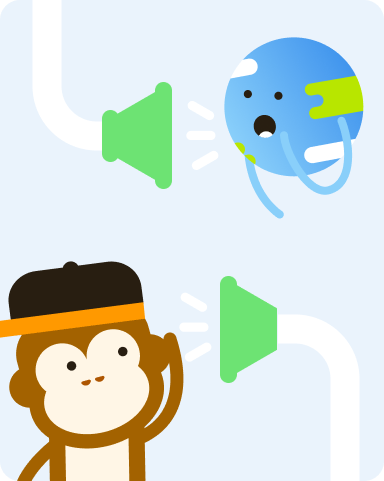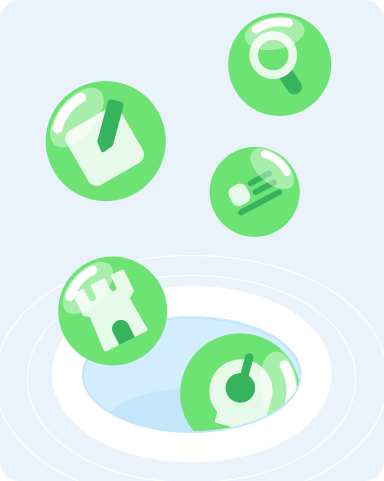Learn Hebrew
with Ling
Use our comprehensive lessons, conversation topics, and more to connect with those closest to you
Used by 5M Ling Learners




What makes learning with Ling special
Interactive exercises
Improve your pronunciation by starting a conversation with our app’s interactive chatbot
Engaging activities
Practice your skills with mini-games and track your progress with fun quizzes
Mix of languages
Choose from over 60 languages, both big and small, and listen to audio from native speakers
Proven results
Backed by linguistic research, our learning methods can help you achieve fluency in record time

Master 4 language skills in 10 minutes a day




1-3 minutes to learn new vocabulary
3-5 minutes to review
3-5 minutes to test your listening skills
Done!
Join over 5 million language learners for a 100% guaranteed amazing language experience
Frequently asked questions about learning Hebrew
According to the Foreign Service Institute, Hebrew is classified as a category IV language. This means that it will take the average learner approximately 1100 hours to reach proficiency!
In other words, if you studied for two hours every day, it would take you 1.5 years.
Hebrew is the official language of Israel, but it’s now spoken among Samaritans and Jewish people, for a total of 9 million people worldwide! Despite it being a native language for 5 million people, it’s used most often for prayer and study.
Want to learn more about Hebrew? Use the Ling app. With over 200 Hebrew lessons, you’ll learn everything about the language in no time!
Learning Hebrew is a great way to enrich your knowledge about such a rich culture and heritage. With the knowledge of Hebrew, the resilience of the Israeli people and their journey can be better understood. Hebrew is also one of the oldest languages in the world.
Here are some other important reasons to learn Hebrew:
- Grammar: Modern Hebrew has the same sentence structure as the English Language, so it should be easy to understand for native English speakers. However, Biblical Hebrew has an entirely different sentence structure when it comes to verb placement.
- Vocabulary: Hebrew has many loanwords from Greek, Latin, and Persian, with vowels, suffixes, and prefixes added to the end.
- Speaking/listening: Hebrew sounds more like Arabic than any other European language. Yet, it is very different. Hebrew includes a lot of “gruffs” and “r” sounds.
- Reading/writing: Hebrew has 22 letters in its alphabet, five of which are in their final form. Since vowels aren’t included, words have to be guessed based on previous knowledge or context.
To see what we mean, learn Hebrew with the Ling app! With extensive lessons on reading, writing, listening, and speaking Hebrew, you’ll be fluent before you know it.
Learning Hebrew is said to be much like learning how to recognize patterns. Since the words are developed from root words, the trick is to learn the system. Once you’ve got it, you’re all set!
Another challenging aspect of Hebrew is pronunciation, but this can be overcome with time and practice. Start with beginner Hebrew lessons to ease your way into the language.
If you’re interested in how to learn Hebrew online or what the best Hebrew apps are, look no further. The Ling app is the best one-stop shop for language learning. With bite-sized, interactive lessons, you’ll forget you’re even learning!
Yiddish is the second most spoken language among Jews after Hebrew.
It is recommended that learners choose Hebrew over Yiddish as you’ll have the benefit of knowing both scripts.
Here are some of the main differences between Hebrew and Yiddish:
- Hebrew has many different vowels, but their usage is optional. Meanwhile, Yiddish uses letters to represent their vowels.
- Hebrew is a Sematic language used across the Middle East, while Yiddish is a dialect of the German language.
- Even though Hebrew and Yiddish share the same script, some letters differ.
Looking for the best way to learn Hebrew? Use the Ling app! With Ling’s cutting-edge technology, you can even practice your conversation skills and get feedback on your pronunciation by talking with an AI chatbot!















































